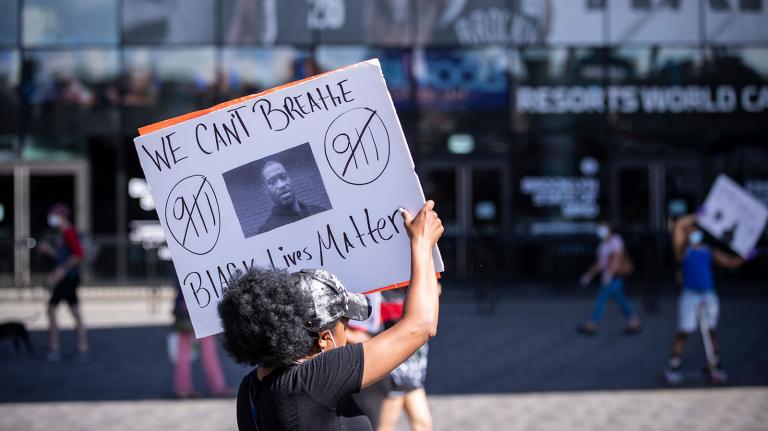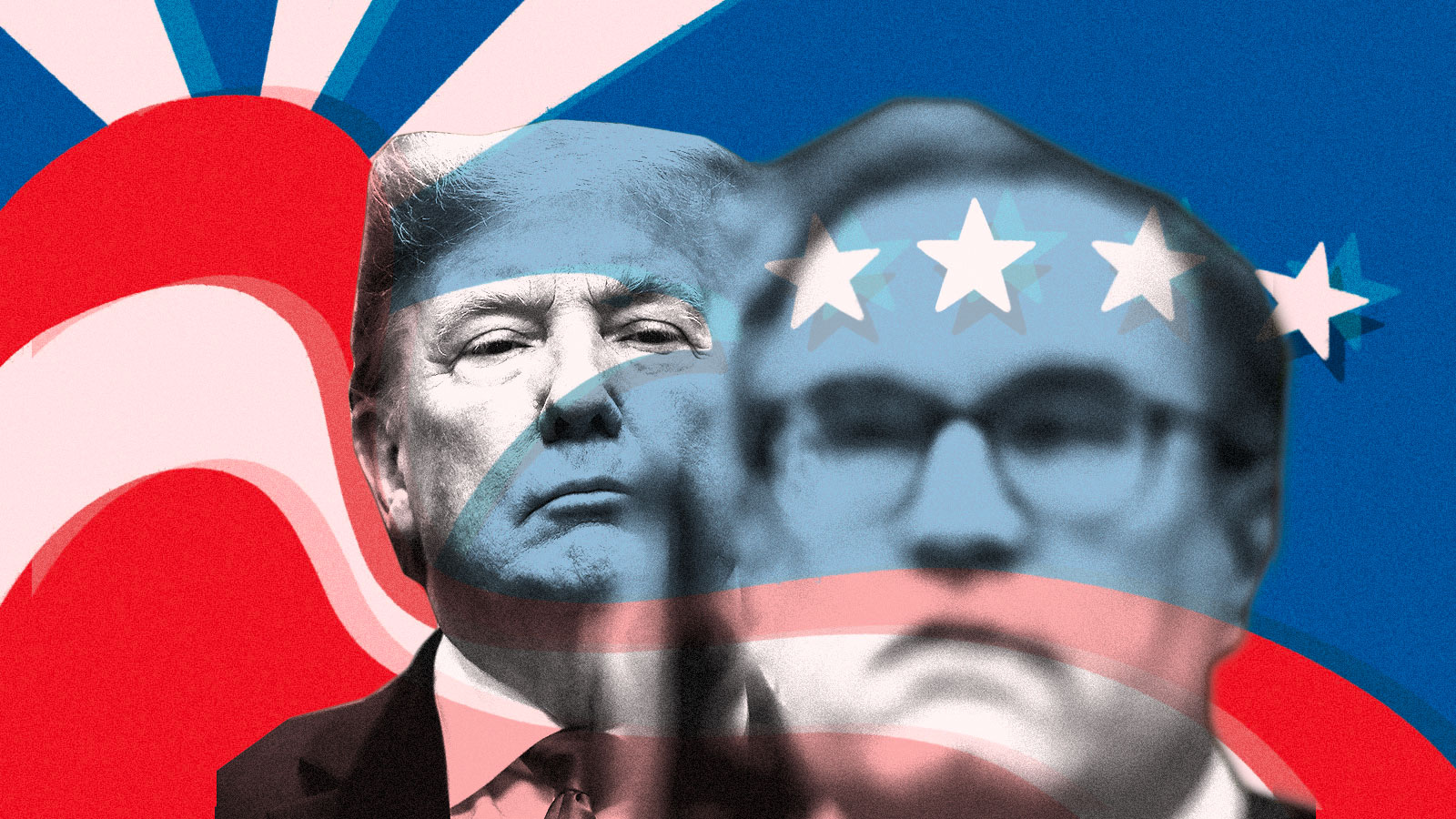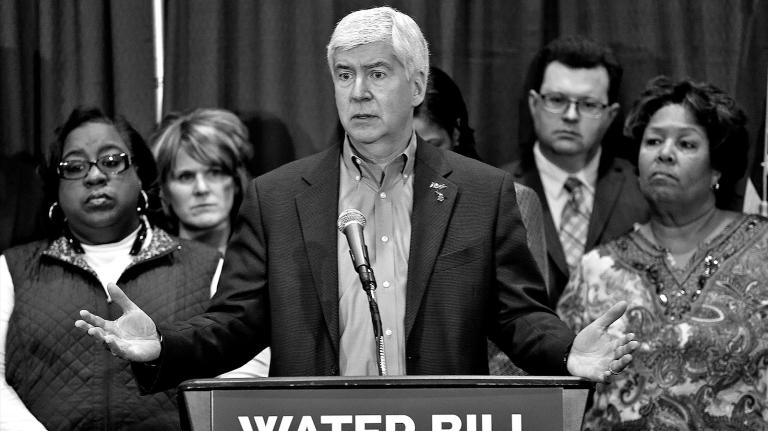The irony matters not to the Trump administration that its repeals of federal air rules would compound the fatal police choking of George Floyd by suffocating thousands more Black people. The White House is not moved by how pollution primes Black, brown, and Indigenous bodies to increased havoc from the coronavirus.
Instead, it adds insult to injury by using the economic devastation of COVID-19 as a cover to gut even more environmental protections. The Hill recently reported that 352 facilities — including several owned by oil, gas, and coal companies — have received federal permission during the crisis to skip monitoring of water pollution.
After three and a half years and 100 environmental rollbacks either completed or in progress, according to the New York Times, this is no surprise. President Trump has spent more time defending Confederate monuments than voicing concern over COVID’s taking of 16,000 Black lives that would still be here if African-Americans weren’t dying at more than double the rate of white Americans.
The cost of condoning the disadvantage and disenfranchisement of, and the disinvestment in, Black people has exploded on us as Trump has mismanaged a virus into a massacre for the ages — and age-old police brutality has gone one bullet in the back too far. The question is whether white society is finally ready to pay the bill – to which COVID-19 has raised the stakes by illuminating the role environmental justice must play, adding it to decades-old concerns over education, employment, housing, policing, and political representation.
Now that white Americans claim to be on the clock against systemic racism, a primary task is to clock the systematic dismantling of air and water regulations that stand between Americans and breathing in or ingesting toxic fumes, harmful chemicals, and debilitating dust. Neither our education nor employment goals can be fully realized with perpetually sickened bodies.
With Trump a lost cause — and busy romancing the Lost Cause — people can still fight a rearguard battle on hypocrisy by calling out his industrial enablers. It is the perfect moment to do so as the Fortune 500 is stampeding over one another to issue the most “woke” press release claiming to be in the trenches fighting systemic racism.
For fossil fuel and chemical companies, claiming to be woke is tantamount to a taunt. You cannot possibly stand with Black people when your company mows them down in a hail of neurotoxins.
Take the U.S. Chamber of Commerce. It has orchestrated arguably the most grandiose display of lip service in corporate America, offering a textbook case of what many antiracist advocates criticize as “performative allyship.” The chamber last month hosted a national town hall on inequality, featuring African-American celebrities Gayle King and Kareem Abdul-Jabbar, as well as Howard University President Wayne Frederick. Chamber President Suzanne Clark also wrote a July 9 op-ed in Fortune stating that, as the nation’s leading lobbyist, her organization bore the responsibility “to drive sustained action to eliminate systemic disadvantages.
“We have committed to put the collective muscle of American business behind an urgent nationwide push for equality of opportunity,” she claimed.
The day before the town hall, the chamber released a report titled “America’s Opportunity Gaps” with data on “six key areas” where there are racial disparities: education, employment, entrepreneurship, criminal justice, health, and wealth. The “Health” section of the report reads: “Health outcomes are driven by an array of elements, including underlying genetics, health behaviors, social and environmental factors, and healthcare. Health behaviors, such as smoking, diet, and exercise, and social and economic factors, are the primary drivers of health outcomes.” Nowhere to be found was the concept of systemic industrial pollution. (In contrast, in the Obama administration’s Healthy People 2020 program, “environmental health” included the quality of outdoor air, soil, and groundwater and exposure to toxic substances.)
Two weeks after the townhall, the chamber released an initial “Equality of Opportunity Agenda.” Suddenly there were only four areas of racial disparity: education, employment, entrepreneurship, and criminal justice. Health and wealth were gone.
It doesn’t take long to realize why.
In the last decade, the chamber has by far been at its most active fighting on behalf of industry against President Obama’s efforts on health reform, climate change, and toxics. During the previous presidency, the chamber recorded its four highest years of spending, much of it in an effort to defeat Obamacare and Environmental Protection Agency rules to curb greenhouse gases and poisonous emissions.
Though the chamber is legally allowed to be highly secretive about its funding, a 2017 Public Citizen analysis of voluntary disclosures placed Dow as the group’s top funder. (Hartford Financial Services was second, and Chevron was third.) The dark money watchdog group Issue One reported that from 2010 to 2016, Dow gave $13 million to the chamber, more than twice what the second-ranked donor Issue One identified offered up.
While its funding is mysterious, there is no secret about the chamber’s mission. Its CEO, Thomas Donohue, baldly said a decade ago that companies come to him with cash in hand to lobby on issues that are public relations nightmares — to “give them all the deniability they need.” The New York Times reported that Dow Chemical, for example, gave the chamber $1.7 million in 2009 to fight tighter regulations at petrochemical plants The same year, health insurers secretly funneled $86 million to the chamber to squash Obamacare, while publicly going through the motions of working with the new president and Democrats on health care reform.
But while the guts of Obamacare have largely survived industry and conservative attacks, the Trump administration is much more successfully ripping out the guts of environmental protection, with the chamber acting as coach, quarterback, and cheerleader.
During the Obama years, the chamber joined most energy companies in vigorously opposing the Obama administration’s Clean Power Plan, the United States’ participation in the Paris climate agreement, the Mercury Air Toxics Rule, the Waters of the US regulation (to protect more wetlands, tributaries and intermittent streams), executive orders to curb fine particulates in soot, and Obama’s decision to reject the Keystone XL pipeline. Donohue said Obama’s climate actions run “a serious risk of punishing Americans with higher energy bills, fewer jobs, and a weaker economy, while delivering negligible benefits to the environment.”
Never mind that the Obama administration calculated massive annual health and economic benefits of cleaner air and water: The Clean Power Plan would avoid about 150,000 asthma attacks and 500,000 missed school and workdays. Rules to cut mercury and air toxics would prevent 120,000 cases of childhood asthma. Tighter ozone standards would avoid 400,000 asthma attacks.
Never mind that we now know that fine particulate matter spewed by power plants, agricultural pesticides, and transportation kills at least 100,000 Americans a year — more than homicides and traffic accidents combined. While the consumption habits of white Americans disproportionately produce particulates, African Americans and Latinos disproportionately breathe the poison into their lungs. A 2018 federally-funded study found that non-white Americans bear nearly 30 percent more exposure burden to fine particulates than the overall American population; for African Americans, it is more than 55 percent.
Never mind that a new Harvard School of Public Health study found that if the United States adopted the World Health Organization’s recommended standards for fine particulate pollution, we would save more than 140,000 lives in a decade. That research came on the heels of another Harvard study that found that small increases in long-term fine particulate exposure correlate to large increases in COVID-19 death rates.
None of that was in the chamber’s call for “swift policy actions to address gaps negatively affecting Black Americans.” The chamber’s activity pierces a gaping hole in its sudden wokeness. After all, African Americans and Latinos disproportionately live closer to chemical plants, fossil fuel facilities, brownfields, and Superfund sites whose operators the chamber helps in skirting regulations.
When Trump nominated former coal lobbyist Andrew Wheeler to run the Environmental Protection Agency, the chamber heartily endorsed him as a “steady hand” in the months that he served as acting administrator after the scandal-induced departure of Scott Pruitt.
The steady hand has steadily delivered:
- Replacing of the Waters of the U.S., which removes many wetlands and tributaries from federal protection
- Rolling back Obama’s 54.5 mile per gallon fuel economy standard rule down to 40 mpg
- Replacing the Clean Power Plan with rules that the EPA itself admits could lead to 1,400 more deaths a year from fine particulates
- Refusing to tighten particulate soot standards
- Softening of the Mercury Air Toxics rule
- Leaving ozone standards in place, despite scientists saying tighter rules could avert nearly 2 million asthma attacks a year in children
- Planning a rollback of methane rules
- And most recently, gutting the 1970 National Environmental Policy Act by limiting public input and scientific rigor over proposed infrastructure projects
A key strategy Wheeler employs in dismantling air and water protections is refusing to consider most of the Obama administration’s estimates of the tens of billions of dollars that would be saved in health care costs and lost worker productivity. Low-balling benefits bolsters industry claims that regulations are useless and therefore punitive. Last month, when Wheeler rolled out his plan to apply his idea of cost-benefit analysis to Clean Air Act rulemaking, the chamber was down in the gutter praising it, along with other lobbying groups – the American Petroleum Institute, the National Association of Manufacturers, the American Chemistry Council, and the National Mining Association.
If polluters are allowed to pollute, we know which children will continue to disproportionately lose time in school, which parents will take sick time at work, which neighborhoods will have depressed home values, and which people will die either the slow death of toxicity or the relatively sudden death from a pandemic.
And wouldn’t you know it, these polluters — led by white people — say now with a straight face that they stand with Black people.
“It’s not just up to the African-American community to fight the racism these incidents reflect,” Dow CEO Jim Fitterling said in a statement in the wake of the deaths of George Floyd, Breonna Taylor, and Ahmaud Arbery. “It’s up to all of us.”
“I share the anger and pain felt by so many Americans at the recent killings of unarmed black men and women,” said Chevron CEO Mike Wirth, who represents a company being castigated by residents of Richmond, California, for its decades of asthma-inducing and carcinogenic refinery pollution. “Racism and brutality have no place in America. Yet these incidents still occur.”
There are more statements, from the American Petroleum Institute and the National Association of Manufacturers, for example, but none of them suggest that the best way their companies or the firms they represent can help is to stop the violence of environmental racism. None offered to cease pouring pollution into open wounds. None of them reckon with the brutality of particulates, mercury, forever chemicals, ozone, and leaded water. They stay silent on the true work fossil fuel and chemical companies must do because they know the U.S. Chamber of Commerce is working hard on their behalf to keep the current system in place.
Even as the chamber pledged it would “drive sustained action to eliminate systemic disadvantages,” it endorsed 10 candidates for the Senate — all of them Republican. None received higher than an 11 percent lifetime mark on the League of Conservation Voters’s national environmental scorecard. All six incumbents (including Senator John Cornyn of Texas, Senator Thom Tillis of North Carolina, and infamous climate denier Senator Jim Inhofe of Oklahoma) earned 2 percent or less from the Leadership Conference on Civil and Human Rights in its 2018 rating of the 115th Congress.
The Hill reported this month that the chamber spent nearly $1 million to help Tillis win his Republican primary race in March. Forget that the chamber called up Kareem Abdul-Jabbar and Gayle King when it suited their public relations purposes, its actual politics are embodied by Cynthia Lummis of Wyoming, who is vying for an open senate seat and has its endorsement.
In an interview earlier this month with the Washington Examiner, Lummis said, “Those who say climate change is an existential threat are completely mistaken.” She supports Trump’s nomination of William Perry Pendley to run the Bureau of Land Management even though the nominee denies climate change, believes federal land should be sold off, and argues that Black Lives Matter was founded on lies regarding the 2014 police murder of Michael Brown in Ferguson, Missouri.
The chamber’s support of a slate of candidates hostile to civil rights and the environment makes a sick mockery out of its tribute to Representative John Lewis, who died last week. Lewis not only risked his life for African-American voting rights, he also cared deeply for the environment, endorsing the Green New Deal and earning a 92 percent lifetime score from the League of Conservation Voters. His failed Environmental Justice Act in 1992 laid the foundation for President Clinton’s 1994 executive order mandating federal agencies to factor it into policy making. The chamber hailed Lewis for devoting his life”to ending systemic inequalities,” claiming: “His voice will always be with us, challenging us to continue to work to advance the ideals for which he put his life at risk.”
The best way the chamber could advance Lewis’s ideals is to stop feeding systemic inequalities with its support of fossil fuels, hazardous chemicals, and toxic politicians. Given how many African Americans die because of polluted air, the U.S. Chamber of Commerce is no ally. It is just another cop standing to the side as Black folks are being asphyxiated to death.




